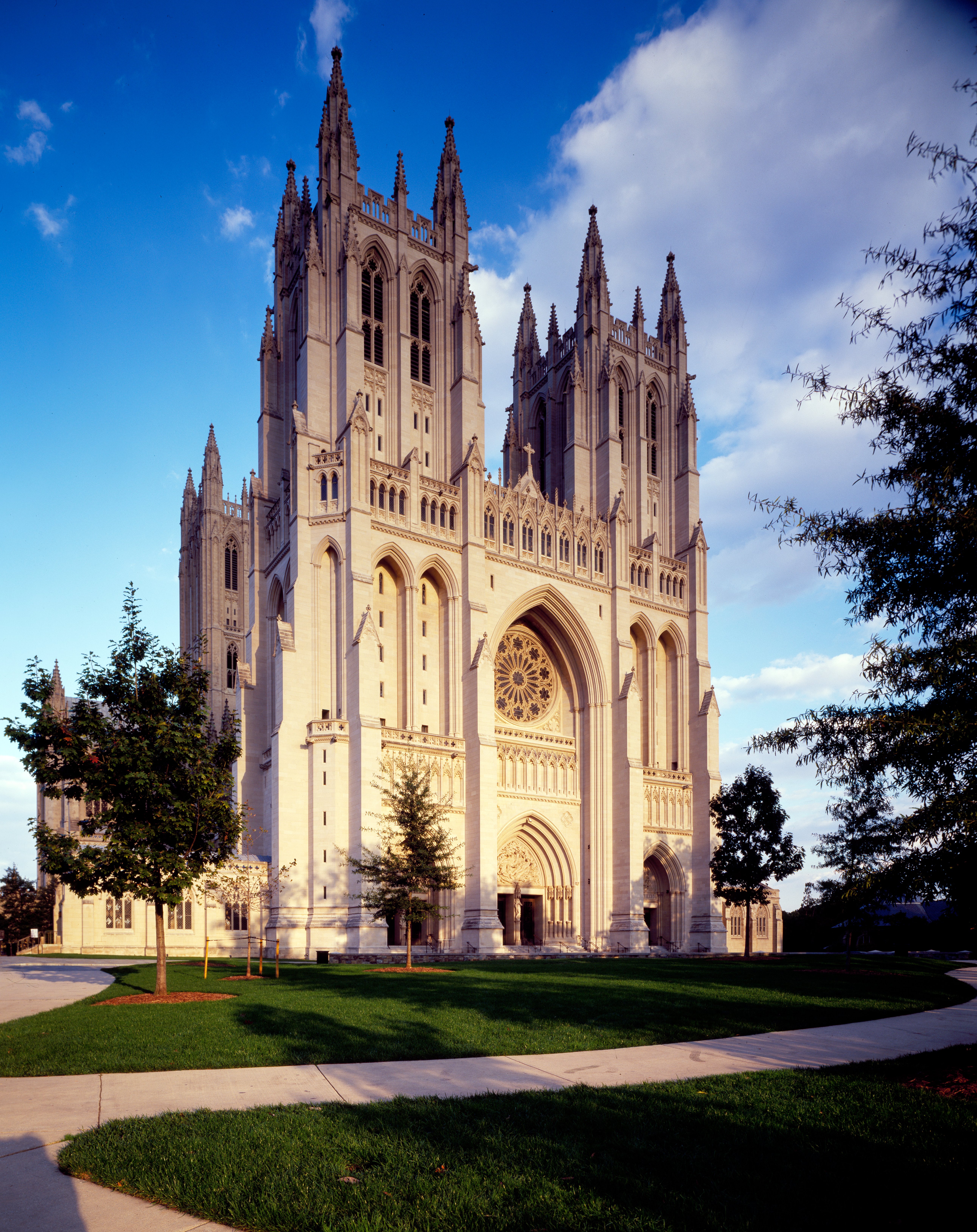
The National Cathedral in Washington, DC, designated by Congress as the “National House of Prayer.”
A few weeks ago, I read two magazine articles full of ideas about what American religion SHOULD be like.
Politico says we should be atheists:
After all, the United States is the most scientifically advanced society in human existence, and as far as atheism has a history—and it is an oddly uncharted one—it is popularly believed to be of slow, steady scientific advance.
But, because of political and cultural history (from clergy support of the Revolution to everyone hating the Soviet Union during the Cold War), atheism hasn’t ever really stuck here.
Meanwhile, First Things, a church-state journal that comes from a conservative Protestant perspective, featured a piece this month by Carl R. Trueman, who says that Reformed theology is ideal for America today, for reasons that are both opposite and weirdly similar:
Reformed Christianity is best equipped to help us in our exile [referring to secularizing American culture]. It possesses the intellectual rigor necessary for teaching and defending the faith in a hostile environment.
So we have a secular magazine saying that America is still religious despite our rationality, and a religious magazine saying that America is secularizing and therefore its people of faith must embrace rationality.
I’m going to go ahead and start by saying that I think Trueman’s claim that Christianity is in exile in American culture is basically nonsense. I recommend reading his article anyway, because he has a pretty interesting approach to American political culture, but no, Christians are not in exile.
But I think this rationality thing is interesting, particularly when we’re talking about religion in the public sphere.
Liberal political theory basically requires, in one way or another, that public debate be “rational.” (No, we’re not entirely clear on what that means – it depends on your theorist of choice.) This is often used as a reason to shut religion out of public debate – it’s not “rational” and therefore shouldn’t be included in the arithmetic of calculating the common good. So the fact that both the “why aren’t we atheists?” and “why aren’t we Calvinists?” articles are both using that kind of language to talk about religion’s role in America’s political culture isn’t a coincidence – it’s because it’s the baseline of participation.
Nick Spencer, writing for Politico, looks skeptically on religion in the public domain. He doesn’t seem to mind the “diluted deism” of American political and cultural history, but something’s changed:
In the last decades of the 20th century, history veered off script. The world stopped secularising, and some religious groups, most famously evangelicals in America and Shias in Iran—two groups not usually bracketed together—found a political voice that had heretofore been muted. The results were often troubling and sometimes grotesque.”
In his narrative, America had managed to stay rational and religious mostly because religion didn’t get out of hand – we separated church and state, limited the power of the church, and everything went just fine until those darn Culture Wars stirred the pot by overstepping their limits. Atheists, in this view, have become more visible as they’ve pushed back in search of a rational public sphere.
For Trueman at First Things, the source of irrationality in the American public sphere isn’t religion – it’s godlessness. He views Reformation theology as holding the key for explaining the messiness of politics. We could have a rational debate and all come to reasonable conclusions… if sin hadn’t intervened:
[Sin] injects a basic irrationality and emotional passion into moral debates. This distortion of conscience and reason explains the apparent impotence of otherwise compelling arguments.
But really, switch that around: Change out “sin” for “religion” and you could have an atheist talking about the need to vanquish religion from the public domain.
Both of these writers have the same idea for what the public sphere should be: “rational,” which basically seems to mean using whatever their intellectual criteria of choice is to exclude whoever they disagree with, because the people they disagree with are “irrational” and “emotional.”
So that’s tricky. How do you decide who gets to be in the public sphere when everyone agrees it should be “rational” and no one says what they think rationality means? And Spencer in Politico is clear that some religion can be rational and some atheism can be rational, so how do you decide which is which?
(No really, I have no idea. Or I have some ideas but they involve throwing my hands up and giving up on the concept of “rationality” altogether.)